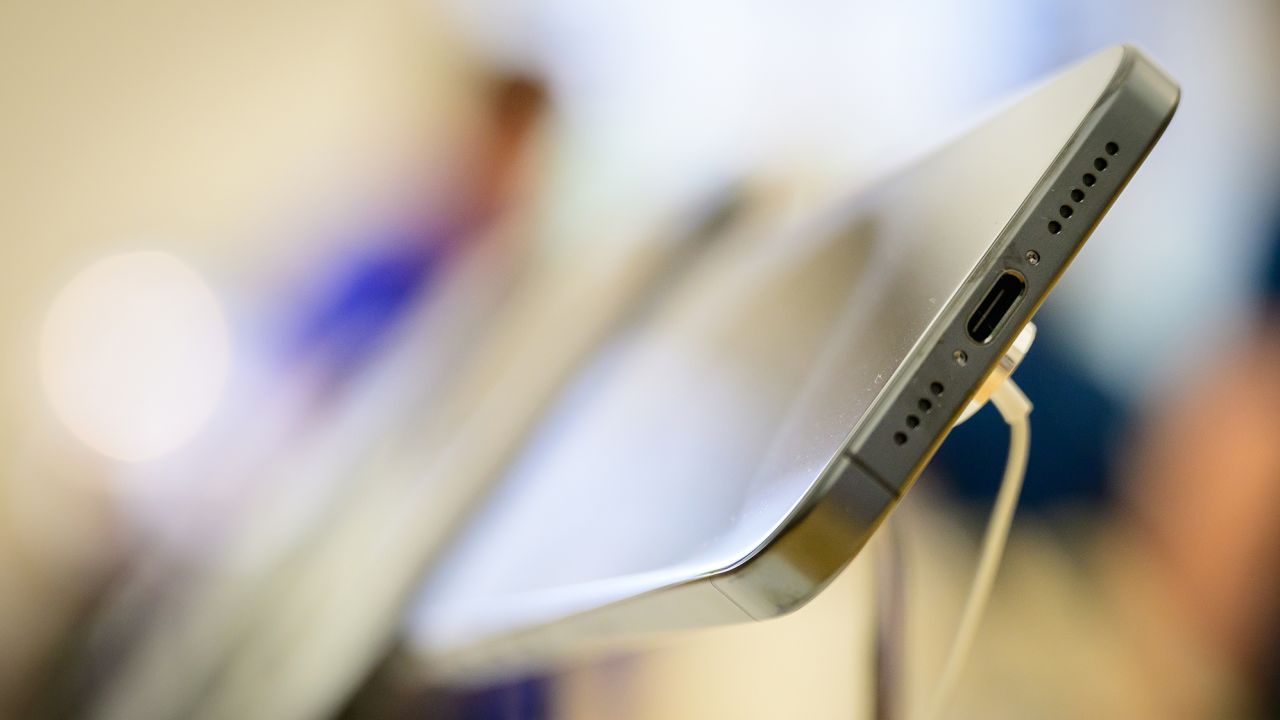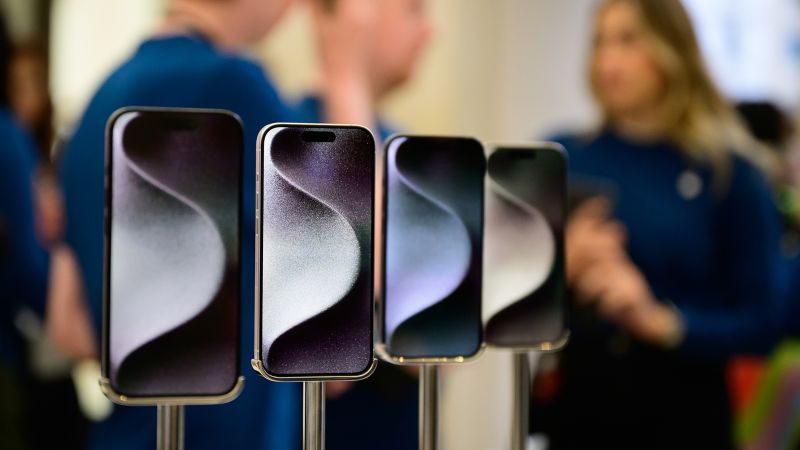Apple’s iPhone 15 lineup hit stores Friday as people waited in long lines across China, Europe and the US to be among the first to get their hands on one of the company’s next-generation smartphones.
Leading up to launch day, analysts at firms such as Wedbush Securities have reported iPhone 15 pre-orders tracking much stronger than originally expected, with a heavy demand on its premium iPhone 15 Pro offerings, especially the Pro Max. Delivery and shipment times have moved to late October through mid-November for various Pro models.
The new iPhones come as Apple’s sales fell for the third consecutive quarter last month. iPhone revenue came in at $39.7 billion for the quarter, marking an approximately 2% year-over-year decline, as people update their devices less often.
According to Wedbush estimates, about 250 million iPhones have not been upgraded in more than four years. Advancements made to the processor and camera system, along with discounts from mobile carriers, could be more than enough reason for people to finally upgrade this year.
The iPhone 15 Pro starts at $1,099, and the iPhone 15 Pro Max starts at $1,199. Apple’s entry level iPhones, the iPhone 15 and iPhone 15 Plus, cost $799 and $899, respectively.
Here’s a closer look at what’s new:
The latest iPhones are packed with subtle but significant design changes. To start, the iPhone 15 Pro and iPhone 15 Pro Max now feature a titanium casing, allowing the design to be slimmer and thinner than before.
Other design changes on the premium models include a more-advanced 48 megapixel main camera with a larger sensor and a new telephoto lens for 5x optical zoom camera, exclusively on iPhone 15 Pro Max. The new Pro models’ design also features contoured edges and a customizable Action button, which gives the ring/silence button additional controls, from starting a voice memo to writing a note. The Pro line comes in four colors: white, black, natural and blue.
Meanwhile, the basic iPhone 15 phones now include updated image stabilization for taking photos and videos, 2x optimization and updated portraits with richer color and better low-light performance. They will also come with the “Dynamic Island” tool — home to alerts, notifications and other controls, in place of the notch — which were previously only available on the iPhone 14 Pro.
The iPhone 15 lineup also includes an Ultra-Wideband chip to power a handful of new features, including one that makes it easier to find friends who share their location in crowded areas.
The iPhone 15 comes in 5 colors (white, black, pink, green and yellow) and in two sizes: A 6.1-inch screen for the iPhone 15 and 6.7 inches for iPhone 15 Pro.
Perhaps the biggest change coming to the iPhone 15 models is that they will now use a USB-C charging cord, ending an 11-year run with Apple’s proprietary Lightning charging cable.
Now Apple customers can use the same USB-C chargers to power their iPhones, iPads and Mac computers — no more scrambling to find the right charger for each device. Apple said a dedicated USB-C controller will allow for transfer speeds of up to 20 times faster than with USB-2 technology for the iPhone 15 Pro.

The switch comes less than a year after the European Union voted to approve legislation to require smartphones, tablets, digital cameras, portable speakers and other small devices to support USB-C charging by 2024. The first-of-its-kind law aims to pare down the number of chargers and cables consumers must contend with when they purchase a new device, and to allow users to mix and match devices and chargers even if they were produced by different manufacturers.
Apple is also selling a $29 USB-C Lightning adapter to let people connect their existing Lightning accessories to a USB-C-enabled iPhone or iPad to charge or share data.
The company told CNN that iPhone users can recycle their old Lightning chargers via its in-store recycling program.
Read the full article here




